One of the amazing things about Zelda’s thinking is that she foresaw this crisis. She knew the seeds of our field’s ruin were planted along with the seeds of its flourishing. She wrote about the way the tail of institutional structure would not only wag the dog but become the dog. She saw that predominantly white theatres would be sapped of their own vitality, wither, and die, if they didn’t tear down their own walls to include and reflect the larger society. She saw the encroachment of governance boards, the lure of commercialism, the battle between artistic risk and organizational risk aversion, the inadequacy of government subsidy. She saw how artists need homes, how theatres too often fail to provide them, and she saw that all of this was a dynamic play of forces in which no one was the villain and everyone was complicit. She saw, in other words, that the house she built could not stand in the way it was built.
Corinna Schulenberg at TCG asked me to read from Zelda for the town hall, something I’m always happy to do. These paragraphs come from her essay, “Institution as Artwork,” written on the eve of Arena’s thirty-fifth anniversary in 1986:
A theatre is the enclosing, the enfolding of an idea—a vision—something imagined that has the possibility of finding concrete embodiment. It is simultaneously an imaginative act and a place. When the institutional machine ceases to support the imaginative act and begins to encroach upon the place; when it constricts rather than releases the flow of creative energy by its labyrinthine demands, its busyness; when the accumulation of resources, the dissemination of information, and the marketing of the “product” take more focus and absorb more power than what we are making and the conditions under which we make it, then the institution must be dismantled and reconceived along better lines.
The business of art is the making of art, Zelda reminds us, warning that “If we fail to get this crystal clear, the institutions we’ve created will become blind mechanisms instead of sentient organisms. … They will eventually petrify and crumble due to the absence of living tissue.”
So you see, we are not the first to cry fire in a crowded theatre. Nor are we the first to decry the crush of capitalism and racism, of sexism and exclusionary violence of every kind.
Like most of her contemporaries, Zelda never set out to build an “institution.” She just wanted to make art away from New York and the hit/flop monied madness of Broadway, what she called “Mammon-mindedness.” More, her accidental institution was just one kind of the many theatres that cropped up across this land after 1950: Theatres that serve audience, those that serve artists, and those that try to move the art form forward; hierarchical institutions and collectives; ensembles of many shapes and intentions; theatres by, for, and about communities of shared identity; laboratory theatres; consciously political theatres and unconsciously political ones; amateur and professional and something in between; musical and canonical; theatres in the streets, on the road, on the farm; spectacle and invisible theatres. Then, after centuries of agreement that theatre was a live form in an actual, shared space, we went virtual.
This much is clear: we are hardly a field at all, so much as a field of fields, a big bunch of somewhat-related-entities-that-call-themselves-theatres—what Zelda dubbed a “constellation of instrumentalities.”
What we don’t have—and I daresay never will—is permanent theatres. And that hurts. And at the same time, it eases the hurt. I remember how liberating it felt when the playwright collective 13P reached the end of its pre-planned lifespan, how moving it was when the wonderful Circle Rep memorialized its own passing. We used to talk about it a lot—how theatres have lifespans—and yet maybe we didn’t want it to be true. So many amazing theatres have come and gone and will, and each leaves a mark and each leaves a space for something new to grow.
If they could build this nation of theatres where none but Broadway, the road, and a few university and community theatres existed, and do it in the time it took for me to be born and go through puberty and college, work a few jobs, turn gray, and sit down to write this, then we can build, repair, dismantle, or rebuild anything over the next sixty years
As I age, what early in life felt like forever now feels like the blink of an eye. I now know: the theatres we take to be “permanent” or definitive in our national landscape have been around for that blink. With few exceptions, they’ve been built in my lifetime, which I don’t feel to be nearly as long as it might look to my kids.
If they could build this nation of theatres where none but Broadway, the road, and a few university and community theatres existed, and do it in the time it took for me to be born and go through puberty and college, work a few jobs, turn gray, and sit down to write this, then we can build, repair, dismantle, or rebuild anything over the next sixty years. And it will be flawed and compromised and stunning and surprising and seeded with its own ruin and flourishing, and ready to be completed or dismantled by the fresh-eyed folks who come after us with a whole different set of ideals and complaints, yearnings and fears.
Of course we have problems to solve and breakage to fix. Some are symptoms, some are underlying causes. All need to be addressed. But what if we thought about the fix as a responsibility to what Zelda calls “the flow of creative energy?” It sounds woo-woo, but it’s practical. As artistic director of New Dramatists from 1996-2014, I worked with playwrights over a period of seven years. At some point I realized that the job of dramaturgy isn’t to identify what’s wrong with plays and help fix them; rather the work was to encourage or inspire writers back to their desks, to embolden them to go the rest of the way—whatever they thought that was.
Might that be our job as colleagues, too: to embolden each other, to open channels for creative energy to spread and ignite more creativity. The way we work together is as crucial as what we make, and that means acknowledging how badly we need each other’s ideas and artistry and experience—especially when it’s different from our own. Then, having acknowledged our need, and being true to the collaborative spirit of this art, we must commit fully to each other’s flourishing, each according to their own lights.
Which brings me to my last point or question or, as I warned earlier, plea. Can we stop trying to win the argument? We’re all groping in the dark on this one. We all care so much. We’re all brave and all scared. We don’t know what we think we know, and we know more than we think. And we’re each looking through different eyes. We need the revolutionaries and the incrementalists, institutionalists and individualists. We need all the ideas: the wild leap, the careful tread, the impatience, and the slow steady labor. There’s a framing from my colleague-friends Jan Cohen-Cruz and Rad Pereira, authors of the important Meeting the Moment: Socially Engaged Performance, 1965-2020, By Those Who Lived It, and it continues to prove helpful: Some things can be changed from within, some need to be torn down, some need to be born anew. We’re all learning which is which. We’re all learning which is which.
Making theatre requires “as if life and death” thinking, but it mustn’t be confused with life and death—health insurance is life and death, climate catastrophe is life and death, guns in schools are life and death.
So please let’s stop shouting at each other. Let’s create generous space for disagreement, both firm and kind. And let’s celebrate each other’s attempts, even when we think they’re wrong—more bright spots, less Breitbart. In the words of the much-quoted adrienne maree brown: “If you know a change is needed and your first instinct when you see people trying to figure out how to change and transform is to poop on them, perhaps it is time you just hush your mouth.”
Maybe that’s the work ahead—to feel all these things we feel and still find a way to listen to each other, to hold ground and also cede it, as we build/rebuild/dismantle/re-found this thing together.
If I sound like I have personally reached any equilibrium on this, I haven’t. I have long lists of wrongs, wronged, and wronged by (which I’d be happy to discuss). I’ve seen the best theatre minds of a new generation of leaders being driven away by snark, vitriol, and privilege protectionism. I’m angry and sad and confused every day. Every day I have to wrestle with myself not to fire off angry, sad, or confusing screeds. But maybe that’s the work ahead—to feel all these things we feel and still find a way to listen to each other, to hold ground and also cede it, as we build/rebuild/dismantle/re-found this thing together.
I had an aunt I loved very much who died this year. She’d had a massive stroke the month before lockdown, and though she regained speech, some memory and sight, and much of her old self, she couldn’t read any more. She liked to be read to, and a lot of what she wanted read was from the Buddhist teacher Pema Chodron about what to do when the world as you know it falls apart:
When things fall apart and we can’t get the pieces back together, when we lose something dear to us, when the whole thing is just not working and we don’t know what to do, this is the time when the natural warmth of tenderness, the warmth of empathy and kindness, are just waiting to be uncovered, just waiting to be embraced. This is our chance to come out of our self-protecting bubble and to realize that we are never alone. This is our chance to finally understand that wherever we go, everyone we meet is essentially just like us. Our own suffering, if we turn toward it, can open us to a loving relationship with the world.
I wonder what it would mean if the metaphor we keep using was real: the field is on fire. (I’m not sure we are a field at all, and, if we are, I’m not sure the whole of it is burning. Or even that every part feels the same heat. But I’m saying, as we do in our art of make-believe, what if?) If it really was on fire—this thing, this activity, this far-flung congregation of people I care for and root for and argue with, grow disappointed and outraged and inspired by—what would I save? If my house was on fire, I’d save my loved ones first—and probably myself. If the field was on fire, what would I save?
Same. I hope we’d save each other.

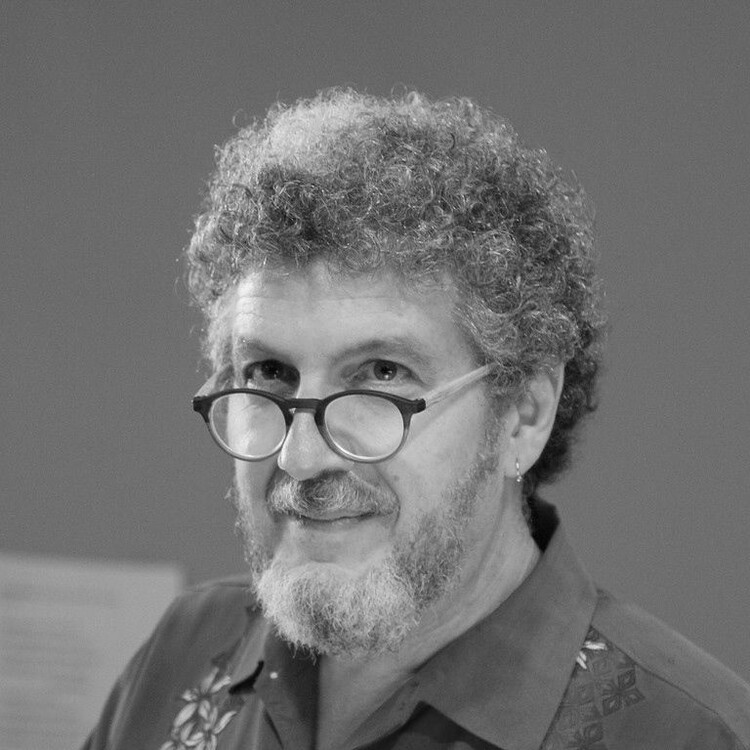
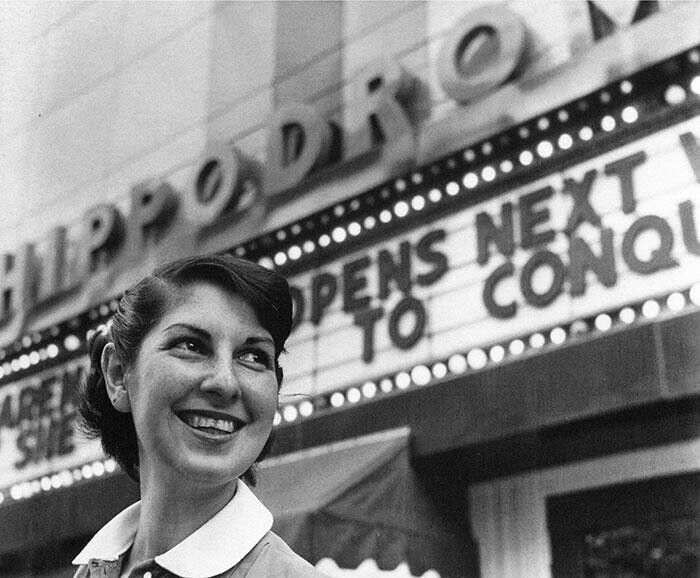
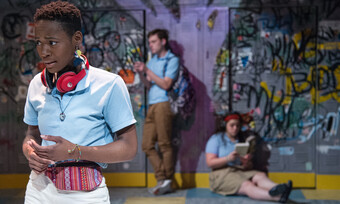


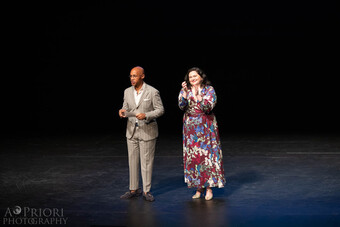


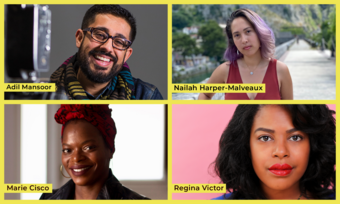

Comments
The article is just the start of the conversation—we want to know what you think about this subject, too! HowlRound is a space for knowledge-sharing, and we welcome spirited, thoughtful, and on-topic dialogue. Find our full comments policy here
I have recently been reading some of the fascinating literature on peace education that aims to find ways to transform the narratives we hold about our lives and values from static into dynamic narratives. In the literature, static narratives are those having predetermined judgements about issues, simplistic plot and character development, and little moral complexity, all of which close down dialogue and understanding. Dynamic narratives, on the other hand, are those having reflective judgements, complex plot and character development, and multidimensional moral complexity, all of which open space for creativity, new dialogue, and new understandings. It is in this liminal, open space that sustained narrative transformation can take place. But it takes more than facts and reasoning to reach such a place. Our hearts must be touched as well as ours minds; we need to shift the "light within" as well as the "light without." Todd, thank you for touching our hearts in such a profound way and helping us shift the "light within."
Powerful and insightful writing on our world of theater. Much to consider, much to absorb. Beautiful read.